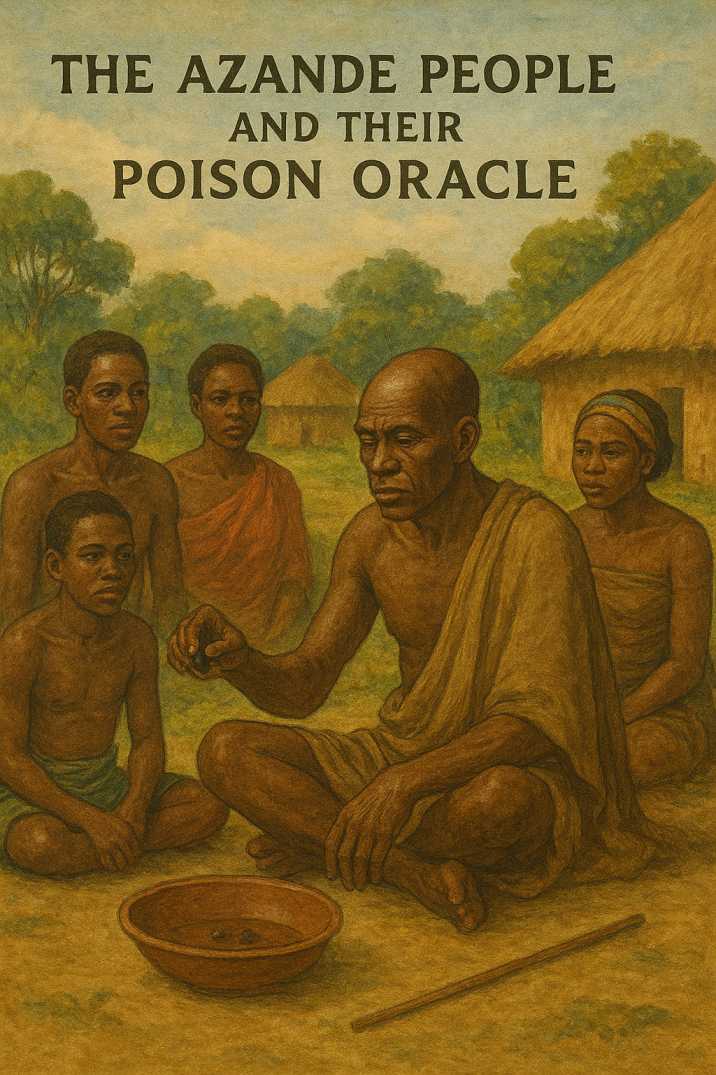In the heart of Central Africa lives an interesting group of people known as the Azande. Their way of life is intriguing in many ways, but their ancient system of justice truly sets them apart. Imagine a situation where your fate lies in the survival of a chicken. Yes, a clucking chicken! Its survival or death has been used to settle disputes from land quarrels to witchcraft accusations for centuries. Strange, isn’t it? Yes. However, it also holds immense fascination. How exactly did this system work? You are about to find out.
The judicial system of the Azande people involves the use of the benge poison oracle. Their view of witchcraft differs from the traditional perspective. They believe that witchcraft is everywhere. It’s in the heart of men and women harboring malicious thoughts towards their fellow individuals. Occasionally, the people thought to be practicing witchcraft themselves are not aware of it and are considered a danger to others. It can also be passed from parents to their offspring. A pole collapsing on an old granny and a couple’s inability to give birth are not coincidences. Witchcraft has to be behind it. In an environment like this, there has to be a system in place to fish out evildoers. This is where the poison oracle comes in.
The poison to be used is gotten from the roots of a creeper plant. The root is dug up, washed, and then scraped. The scrapings from the root are dried under the sun for about three days. After it is dried, it is mixed with water into a paste. This mixture is then fed to a fowl in the presence of a Zande chief. The chief, oftentimes an expert, knows how much of the poison to administer to the fowl, how long it will take to act, and other intricate details as regards the process. He will pose a question, sometimes with the name of the suspected witch: “Is this person guilty or not? If yes, let this chicken die; if not, spare its life.” The survival or death of the fowl will indicate a yes or no answer. If the chicken dies, the suspect is found guilty. In most cases, the process is repeated several times for confirmation.
The benge poison ritual is simple, although chilling and may sound outrageous to us now. What do you mean by trusting justice to the life and death of a poisoned chicken? However, to the Azande people, it is very rational. In fact, you can liken it to their supreme court because it serves the purpose of conflict resolution, dispute settling, finding witches, and even resolving infidelity cases like adultery.
What is fascinating is how this system kept order in society. Knowing that the oracle could be consulted at any time made people cautious about offending others. A person found guilty by the benge oracle is asked to pay a compensation fee to the accuser, most times in the form of chickens. The goal is not to punish the accused with death but to prevent further conflicts and resolve disputes.
Today, of course, the benge oracle has faded. Colonial authorities outlawed it, missionaries denounced it, and modern legal systems replaced it, but among the Azande, belief in witchcraft never truly disappeared, even if the famous chicken poison oracle has gone. When something undesirable happens, suspicion lingers, and people still whisper about unseen forces at play.
Written by: Oke Oluwadamilola



